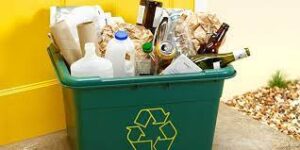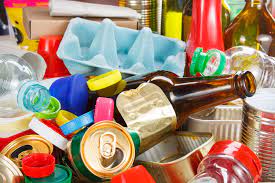Despite the government’s 2020 ambition to increase household recycling rates to 50%, progress has been sluggish. Lobbying Threatens UK Household Recycling Reforms.
But what happens when food companies lobby to shape those policy changes? Using data from Open Secrets, this article will explore how the process works. Lobbying Threatens UK Household Recycling Reforms.

The cost of the reforms
The government’s plan to standardise kerbside household recycling collections across England will be extremely costly for waste authorities.
The NAO has also criticised the Environment Agency for failing to tackle illegal waste exports. While upcoming reforms to the regulation of waste carrier registration and the introduction of digital waste tracking could help, the organisation’s compliance and enforcement activity does not appear to be up to scratch against organised criminal gangs that are exploiting loopholes in the current export regime. The Government should allow the Environment Agency to reinvest some of its charge income from the waste industry into enforcement capacity, the report suggests.
The threat of wishcycling
Last year, the government passed the UK Environment Act, which will require local authorities to offer consistent collection of six recyclable waste streams: plastics, metals, paper and card, glass and food and garden. This will include a requirement to separate paper, cartons and other fibre-based composites from food and drink.
Wishcycling is when people put items into their recycling bins that aren’t actually recyclable. This can lead to contamination, which damages sorting systems and depresses the value of recycled materials on the commodities market.
This is a major concern for the food and drink carton industry.
The government’s stance on the reforms
Too often our waste ends up in landfill or polluting our streets, countryside and marine environment.
This would mean all councils must collect paper and card, glass, metal and food waste from homes unless it is not technically or financially practicable to do so.
However, it is unclear if this will be enough to increase recycling rates.
The role of local authorities
With local authorities having a pivotal role in achieving the government’s recycling targets, establishing the right arrangements at a local level is vital. Locally driven initiatives such as separate food waste collections can help increase the borough-wide recycling rate and reduce greenhouse gas emissions from landfill.
Many local authorities have long-term contracts for collecting, treating and disposing of waste which may impact their ability to implement separate food waste collections. If this is the case, then it’s essential that an audit of these contracts takes place early to assess the impact and any potential cost implications needs read more hear.




















